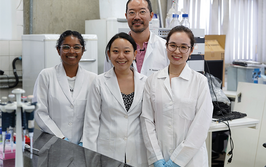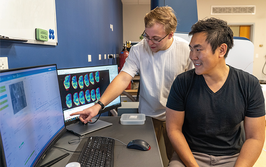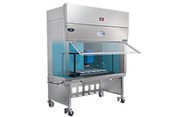BaySpec Portable Mass Spectrometers - Pesticide Screening in Tea

contributed by Bayspec |
After water, tea is the most popular beverage worldwide. Tea has been around for close to 5,000 years and has become a symbol of comfort, culture, ritual, and ceremony richly steeped throughout the world. Tea is also known for healthful properties such as antioxidants, the possibility of lowering blood pressure, and even improving insulin levels. True tea is derived from one plant, camellia sinensis. The distinguishing characteristics between types of teas, such as black, green, and oolong, come with the treatment and oxidation of the camellia sinensis leaves. Herbal teas, also called tisanes, are not made from camellia sinensis, but herbs, spices, and other plant material and often do not contain caffeine.
Log in or register to read this article in full and gain access to The Analytical Scientist’s entire content archive. It’s FREE!

















